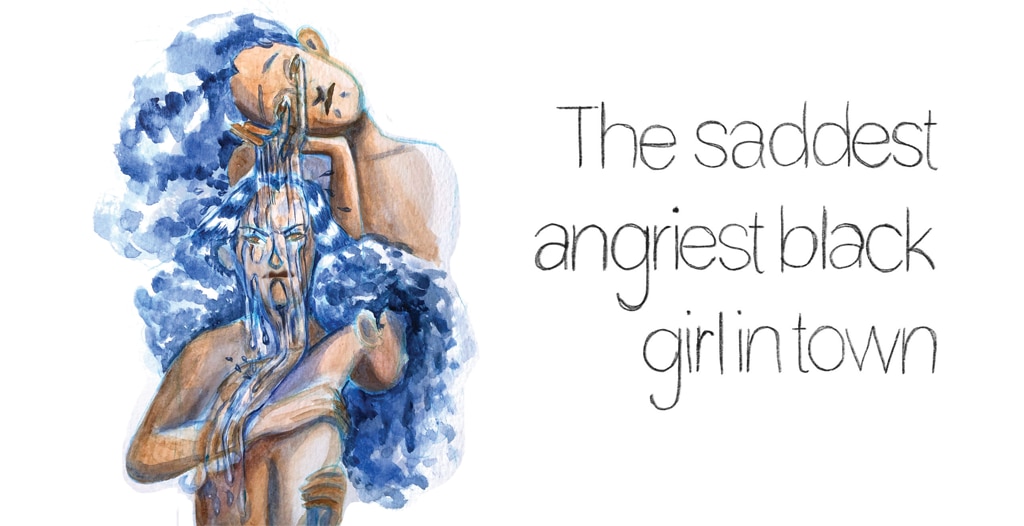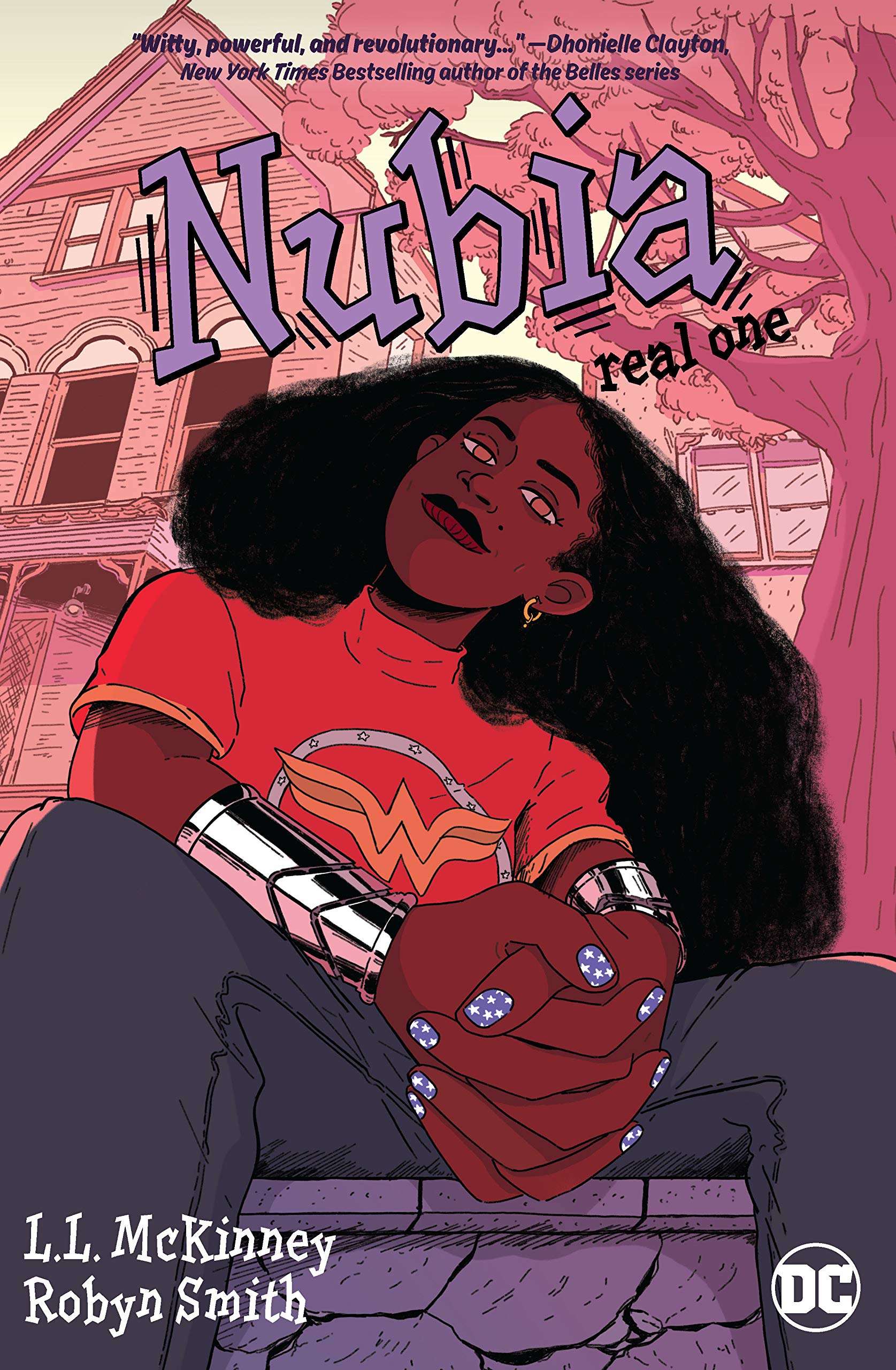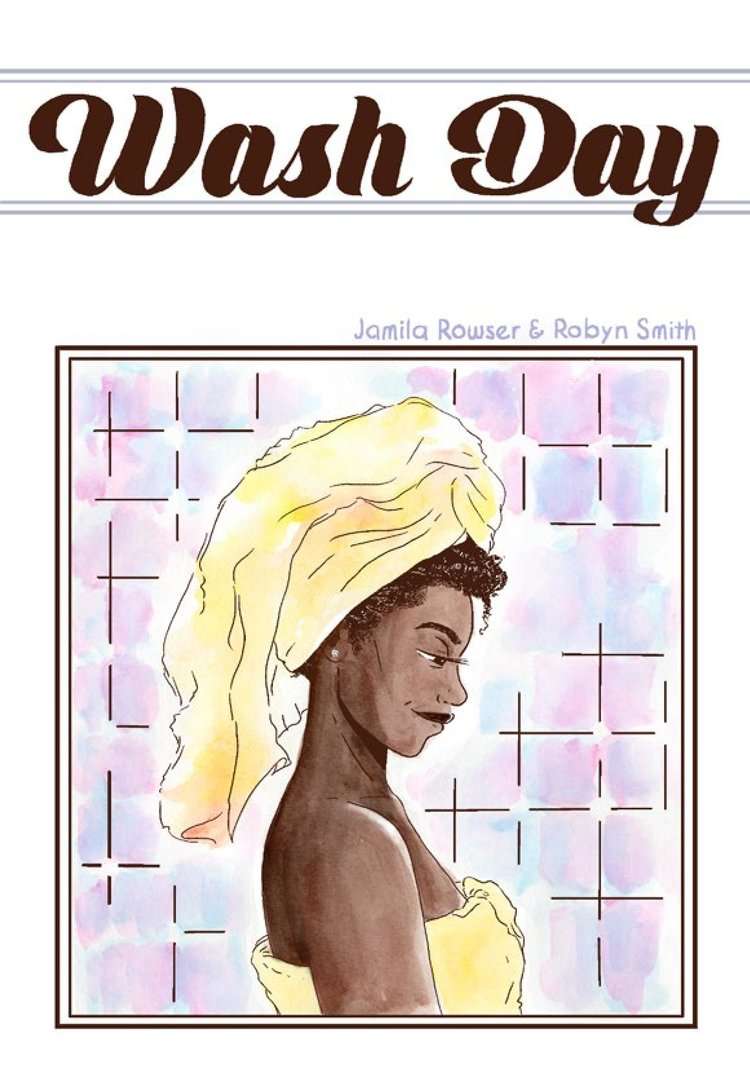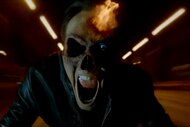Create a free profile to get unlimited access to exclusive videos, sweepstakes, and more!
Indie Comics Spotlight: With Wash Day, Nubia, and more, artist Robyn Smith is making Black Girl Magic real
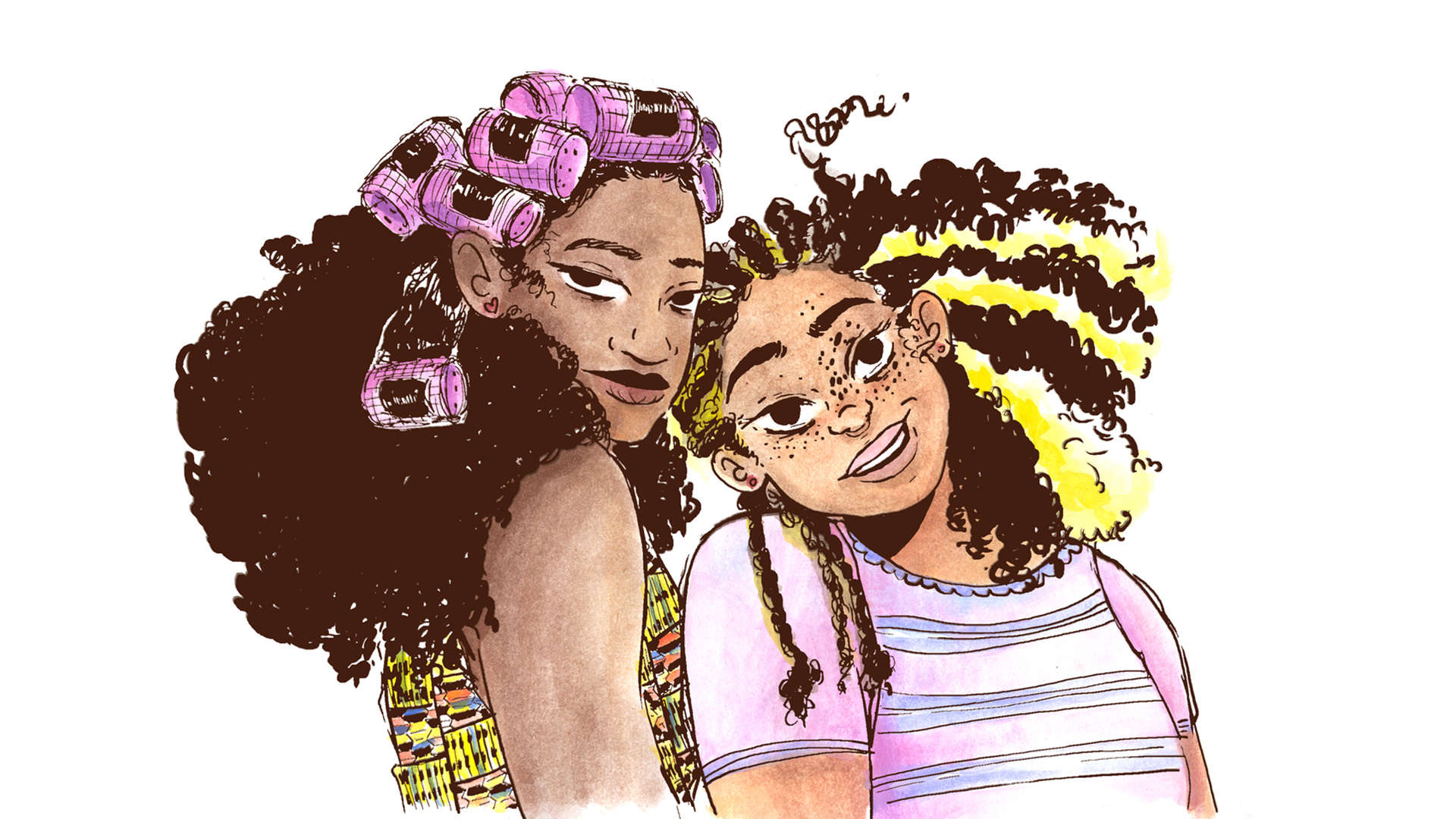
Growing up in Jamaica, Robyn Smith (Wash Day, Nubia: Real One) always knew she would be an illustrator. Her father was a portrait artist, her mother a makeup artist — and young Robyn's creativity was encouraged from an early age. After school, she worked on her homework in the playroom that doubled as her father's studio. She'd watch as he carved charcoal sticks and spread the shavings with his fingers across a blank canvas.
His ability to create stunning hyperrealistic black and white portraits for his clients with just his hands always fascinated her. Inspired by her father's work, Smith would regularly distract herself at school by penciling portraits of her friends and classmates.
One of her favorite pastimes was poring over Archie Digests kept on a small rack by the cashier at her local grocery store. She would read as many as she could get her hands on until her father started bringing them home for his only daughter.
At 16 years old, after graduating high school in Kingston, she brought those digests with her when her family moved to the States. Sharing a house with 16 cousins and relatives in Bronx, New York, the comics helped ease the transition into a whole new life.
Smith continued developing her art style throughout high school and college, but it wasn't until she decided to enroll at the Center for Cartoon Studies as a grad student that she even thought of comics as a career. CCS taught her to adapt her style to the sequential art format, and in 2016, she decided to submit a mini-thesis project that she worked on, The Saddest Angriest Black Girl in Town, to Rob Clough of The Comics Journal for his 31 Days of CCS column. It was not only accepted but featured on the 2016 Best Short Form Comics list. This small win gave her the confidence she needed to pursue comics as a career.
Encouraged by her classmates to make the convention rounds, more people learned about her work. After graduation, while Smith was drawing part-time for the comedy site College Humor, indie comics creator and publisher Jamila Rowser (Black Josei Press) approached her.
Rowser was Kickstarting a graphic novel called Wash Day, a bi-lingual love letter to Black women and their hair. Smith jumped at the chance to gain more experience and work with another woman creator. Plus, since she'd been drawing fashion-inspired portraits for so long, a sweet, self-care beauty story was right up her alley. The popularity of that project (the campaign reached its goal within hours) led to more commissions and caught the attention of DC Comics editor Sarah Miller. Who invited Smith to pitch concept art for the Nubia: Real One graphic novel, featuring award-winning sci-fi fiction writer L.L. McKinney (A Blade So Black).
The rest, as they say, is history.
SYFY WIRE spoke with Smith about breaking into comics, staying true to her style, and why The Avengers was a game-changer.
What was the turning point that made you decide to switch from portrait art to sequential art?
I love drawing portraits and it's still something I'm super interested in. But actually, the first Avengers movie is what did it. It came out while I was an undergrad. I enjoyed it so much more than I was expecting. I went back home that day and watched the rest of the movies. I needed to know everything about all of these heroes. Then I went to the library, where I started reading all of the superhero comics.
I always liked Archie, but I didn't think I would ever draw Archie. People can enjoy art and not make that art. But after The Avengers, I knew I wanted to [make comics]. I love the way that power is represented while I'm watching these movies. And, of course, I love Avatar the Last Airbender. Anything that had to do with the literal representation of power was significant to me.
Did you decide you wanted to draw for Marvel or DC then?
No, not at all. From there, I started thinking about Caribbean history and the way that a lot of superheroes come from myths. There are so many fantastic Caribbean myths about the abilities of real-life heroes like Nanny of the Maroons for instance. I grew up hearing all the time that she could "catch" bullets. That concept actually ended up in my senior undergrad thesis. I made a league of these three girls who were descendants of these heroes. When I think back, it was quite a struggle because no one else around me knew how to make comics.
I'm so grateful to one of my faculty advisors who bought me all of Scott McCloud's books and other books on comic book theory. Without her, I definitely couldn't have gotten as far as I have now.
Is there anyone else you feel really helped you get your career going?
Jamila Rowser. She really gave me [my first start] because she hired me almost right out of school to draw Wash Day. She just gave me the chance to get used to working with someone else and gave me the space to be an amateur, if that makes sense. She was very understanding of the fact that all of this was a little new to me. And even though I had the advantage of knowing how to make a comic, I still didn't have the confidence to create them independently.
She believed in me, even after only seeing my mini-thesis.
What was the inspiration for The Saddest Angriest Black Girl in Town?
After my first year at CCD, I felt like I was always in situations where I felt really new. Or that I didn't deserve to be there. I was just so frustrated with everything going on around me. The school is in Vermont, and I'm from Jamaica. The cold was ridiculous and it was another culture shock. I'm not a confrontational person, so I made this comic to help me through that. I was also extremely interested in autobiographical comics at the time.
Black Josei Press is now publishing it, correct?
Yes! After I graduated from CCS, I only trusted the lab at CCS to print it. I would go back to Vermont on the train, which is seven hours. I would take a seven-hour train ride, put the books together by hand, and then come back down and sell them at conventions. I told Jamila, "I'm done with this comic. I can't spend this much time printing it anymore." She offered to print it under Black Josei Press. So now it's coming out after a successful Kickstarter, which I was not expecting.
How did your NUBIA: Real One editor, Sara Miller find you?
After Wash Day, I started taking smaller commissions and I post my art on social media. I remember when I realized Sarah began following me on Twitter and Instagram. I thought, "Crap. Now I can only post my best art." When she reached out and told me that she was familiar with my work, that just blew my mind. Then she asked for art samples!
You've said before that you don't have a "traditional comic book" art style. Did you try to change your style for the pitch?
I immediately started practicing different styles because I felt I had to draw "good enough" for DC. It was such a big deal. I only had two weeks to do it, but I was working on it every day nonstop because I was just so worried about my style.
At no point did it occur to me that they reached out to me because of how I already draw. I honestly figured that DC just needed a Black person to illustrate this book and that no one else was available.
I eventually realized that if I had to draw on a project every day, that I had better be able to do it comfortably. In the end, I just sent in Nubia sketches in the style that I wanted to draw.
And I got the job.
When you worked on Nubia: Real One, it was L. L. McKinney's first comic book as well. Did you teach each other?
I didn't have to teach her anything. She's been reading comics for a long time. I wasn't out here buying New 52 comics like she was. Of course, Sarah Miller, our editor, did so much work with us to make that project amazing.
I feel blessed. I happened to work with two people on a project who I really get along with and who have a very similar vision of what they want as I do.
It sounds like you are having a fantastic experience working in comics so far.
So far, yes. That doesn’t mean that everything will always be this good. But in terms of fully published work, I’ve only really worked in this business with Black women writers. I’ve only ever made comics about Black female characters as well.
For now, I would like to keep it that way.
